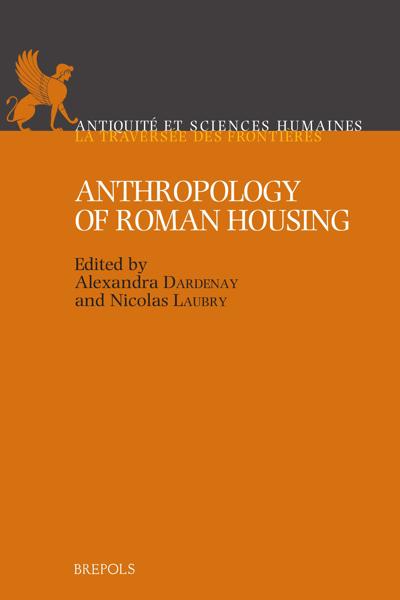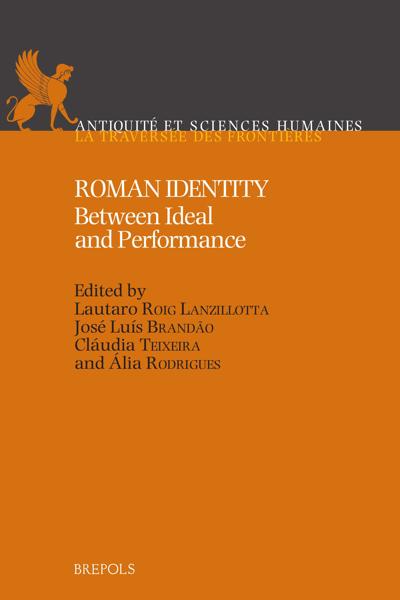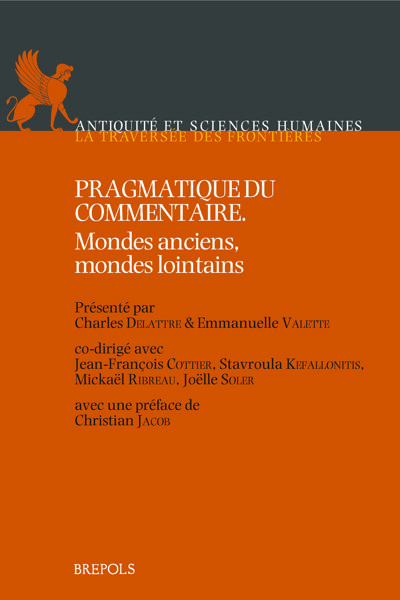
Anthropology of Roman Housing
Alexandra Dardenay, Nicolas Laubry (eds)
- Pages: 324 p.
- Size:156 x 234 mm
- Illustrations:47 b/w, 10 col., 30 tables b/w., 5 tables col., 26 maps b/w, 10 maps color
- Language(s):English, French, Italian
- Publication Year:2020
- € 105,00 EXCL. VAT RETAIL PRICE
- ISBN: 978-2-503-58860-5
- Paperback
- Available
- € 105,00 EXCL. VAT RETAIL PRICE
- ISBN: 978-2-503-58861-2
- E-book
- Available
Combining concepts from historical anthropology with archaeological, iconographical and textual methods, this volume aims to reinvigorate the social history of the Roman living space
“The book under review is meant to present current research perspectives and to indicate new areas of study as well as innovative methods. In this regard the volume succeeds without question.” (Andreas Klingenberg, in Bryn Mawr Classical Review 2021.05.36)
« Cet ouvrage, d’un très haut intérêt, contribue fortement à un renouvellement généralisé des regards et des pistes de recherches, éclairant la progression dans les connaissances et dans la réflexion, ainsi que dans la compréhension des vestiges. » (Robert Bedon, dans Revue des Études Anciennes, publié en ligne le 17.12.2021)
“The book could be seen as merely a bundle of congress papers, but it has more to offer: it shows an appealing power to think off the beaten track of research and offers a multitude of new insights that can stimulate further research. It is therefore a must-have for those who are engaged in the study of the Roman house.” (Richard de Kind, in Babesch 97, 2022, p. 226)
“Overall, this volume (...) collects eleven rich essays that will be valuable to scholars in the field. While many of the methodologies are not ‘new’, the practice of combining methods for a more holistic approach proves to be valuable. The publication is nicely produced with high-quality, clear images (...)” (Cristina M. Hernández, in The Journal of Roman Studies 112, 2022, p. 288)
Alexandra Dardenay is Maître de Conférences at the University of Toulouse and member of the Institut Universitaire de France. She is a specialist of Roman Archaeology, mainly working in the field of Roman Housing.
Nicolas Laubry is Director of Studies for Antiquity at the Ecole Française de Rome. He is a specialist of Roman History and Epigraphy and works on Monuments and funeral practices of the Roman world.
At a time when we reflect intensively on the issue of social cohesion, on the influence of architecture in lifestyles, and on relationships between neighbourhoods within large modern cities, this book aims to approach the study of "inhabiting modes" in Roman urban dwellings. Drawing on concepts common to historical anthropology and incorporating evidence from multiple lines of research (archaeological, iconographic, textual, and others), this volume aims to contribute to the invigoration of a social history of ancient housing through new research projects, publications, and digital tools from both individual and collaborative efforts. This field of study is currently undergoing a period of disciplinary revitalization and this volume is an opportunity to present the most recent work and to conduct a dialogue in an interdisciplinary perspective.
Toward an anthropological approach to the Roman living space (Alexandra Dardenay & Nicolas Laubry)
L'archéologie des espaces domestiques à Pompéi : un point sur la question (Sandra Zanella)
Lucrum facere? Strategie d'uso degli spazi domestici nell'ultima Pompei (Antonella Coralini)
Rooms with a view: status, spatial hierarchy, and seasonality in the upper floors of houses at Herculaneum (James N. Andrews)
Tra domus e villa. Spazio e società nelle abitazioni lungo le mura di Pompei (Anna Anguissola)
With all mod cons? Latrines in domestic settings (Alain Bouet)
Sanctuaires et marges de l'habitat : perception et délimitation de l'espace domestique (Marin Mauger)
Locating the use and storage of female toiletry items in Pompeian Houses (Ria Berg)
Where are the women? Approaching domestic space through graffiti (Polly Lohmann)
Between public and private: the Italian houses of late Hellenistic / Roman Delos (Mantha Zarmakoupi)
House form and household structure: the social analysis of urban domestic architecture in Roman Celtiberia (Jesús Bermejo Tirado)
Des morts chez les vivants ? Les enfants en bas âge inhumés dans les espaces domestiques de Gaule romaine (Nathalie Baills-Barré & Mélissa Tirel)
Place index
Source index




